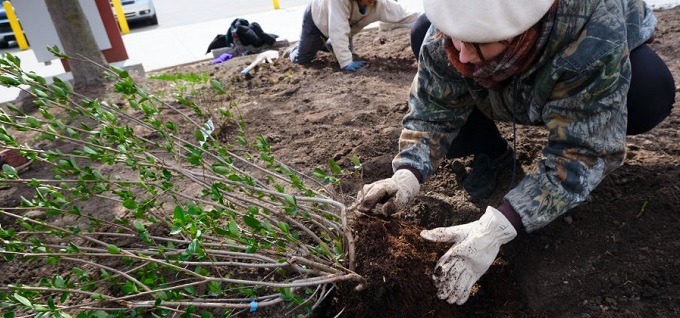A collaborative effort toward sustainability
By Rich Rezler
March 7, 2024
In a significant step toward achieving sustainability goals and carbon emission targets on campus and building broader environmental consciousness, Washtenaw Community College (WCC) earlier this year has launched a new Center for Sustainability and Resilience.
The center will bring together the Michigan college’s facilities division with various groups and organizations across campus, fostering collaboration to advance the college’s sustainability initiatives.
“I believe the formation of this center shows how really serious WCC is about moving the needle to make a difference in how we interact with our environment and the energy we need to consume,” said Bill Ghrist, WCC director of energy, sustainability & facilities planning. “We’re contributing positively in the reduction of greenhouse gases and making Earth a better place to live by our actions.”
Ghrist and WCC professional faculty member Emily Thompson are leading the Center for Sustainability and Resilience with staffing assistance from work-study students.
Ghrist, who chairs the college’s Sustainability Council, is aiming to foster more engagement from WCC staff as the center’s action plans are expanded. Thompson, a biology instructor at WCC, is supervising the work-study students and assisting several groups on campus with the goals and initiatives being pursued by the center.
Thompson, who helped establish the environmental science program at WCC, is a member of the college’s Sustainability Literacy Task Force, and the faculty advisor to the Students for Sustainability club. These organizations will contribute to the Center for Sustainability and Resilience, along with committees focused on WCC’s standing in the Bee Campus USA, Tree Campus USA and Bike-Friendly Campus USA initiatives.
The collaborative effort is intended to provide a centralized focal point where these diverse groups — and other stakeholders — can share ideas, participate in activities, and collectively contribute to the improvement of sustainability practices within the college community.
The stated mission of the center is “to cultivate an engaged, diverse community aiming to achieve sustainability and climate action goals through informed decision-making in the realms of curriculum, college culture, and campus operations.” This interdisciplinary approach underscores the college’s commitment to integrating sustainability into various facets of its functioning.
This article originally appeared here.



